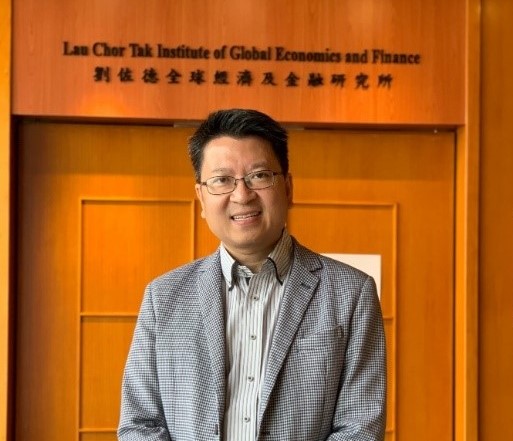Deep insights into the China economy – An interview with Professor Terence Chong

“I am a born economist and I always calculate risks and return in my daily life” – Professor Terence Chong.
If you’re not familiar with Professor Terence Chong, you might recall some of his appearances on television, commentating on economic trends. Professor Chong is Associate Professor of Economics and the Executive Director of Lau Chor Tak Institute of Global Economics and Finance. Not only is he an economist, but his China experience is also undeniable through years of training Chinese officials and as a Visiting Professor at Nanjing University.
Professor Chong will deliver an elective MBA course on “Selected Topics in Business: China in Global Economy in 2019-20”.
China Economic Growth – Understanding its recipe of success
What is the course about?
Many jobs are China-focused or have elements that are intertwined with China. Knowledge of the China economy has become a mandatory requirement to work and excel in different fields. Initiatives like the Belt and Road and Greater Bay Area also mean an expansion in the number of opportunities ahead, further amplifying students‘ need to master their knowledge in this area. For students who have never been to China, this will be a great course for them, as they can gain diverse perspectives. For those who have already travelled to China before, they can get a macro view of the Chinese economy.
What are the course highlights?
Doing Businesses in China ABC – what are they and what you need to know?
Professor Chong will share his insights into the basics of what students need to know before doing business in China. Through the knowledge and understanding of these fundamentals, the foundation will be laid down for students who aim to have a career in entrepreneurship in China. This course will cover the history of China, its future, and risks to be overcome.
This course will examine the factors that led to the prolonged economic growth of this second largest economic power and will ask the question, what is a free economy from China’s perspectives?
The history of China: This will offer students the possibility to consider what China is today, compared to what it was in the past, and its growth rate and open door policy. The course will take into consideration the role of Hong Kong in the 1980s and 1990s and China’s relationship with Taiwan. Infrastructural developments will also be explored, for example, the high-speed train connections and the growth of the internet.
The growth in population has been perceived previously as having a negative impact on society because of the difficulty in managing it. However, it´s seen as being positive in China’s case with the rising popularity of the Internet. As the population increases, this enables e-commerce and payments to flourish.
The future of China: China’s GDP per capita is USD 9,000, in Hong Kong, it is around USD 40,000, whereas in the United States it is over USD 50,000. In other words, China is still a developing country where the insurance sector, the financial sector and the banking system are not fully developed and there is still plenty of room for growth.
China´s Risks: An ageing population is not the most immediate risk since the country has moved from a one to two child policy. It will, however, be an unresolvable issue for the next 10 to 15 years, due in part to the fact that it is impossible for China to import people or labour because it already has the world’s largest population. There is currently no solution for the risk posed by an ageing population in China, but perhaps the country can learn from France, transferring to a less labour intensive society by having more branded products.
How about the major deliverables and takeaways for students?
Throughout the course, MBA students will learn practical issues: how China developed into what it is today without entering the WTO; its “open-door’ policies; Hong Kong’s role in assisting China with FDI; Chinese financial markets; regulations and the future development of e-payment systems and green finance; as well as the future of trade conflicts.
Students must have a genuine interest in this area. It is helpful if they can read China-related news and study the statistics and GDP. It is also important to understand the development of each city or province.
About Professor Chong: A man of many talents
Apart from his busy teaching and research duties, Professor Chong is also the Dean of Students at The CUHK New Asia College, where he mainly deals with non-academic issues. These can range from financial assistance and emotional problems to discipline for over 3,000 students. He has collected a few sayings over time to keep himself motivated and positive, as he feels that “the busier you are, the more efficient you’ll be”; “If you work in different fields, your ability in allocating time is better”; and the “only way to increase your ability is to work more”.
Professor Chong’s advice to students
Professor Chong believes that the most valuable asset of the MBA programme is the students, who come from a host of different backgrounds. He feels that it is a unique opportunity for students to learn from each other. They also need to build long term relationships with their cohort and teaching professors as this network will never get outdated.

